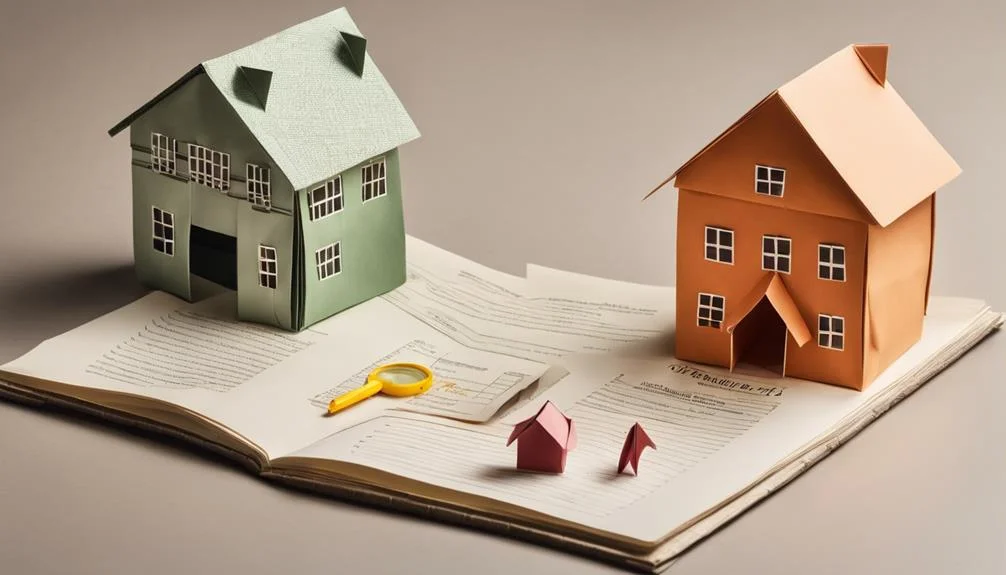The pros of the Homestead Exemption are, firstly, that it substantially reduces the taxable value of primary residences, leading to lower property tax obligations. It provides robust legal safeguards, ensuring homeowners are protected from forced sales by creditors.
The cons of the Homestead Exemption are, it may result in significant revenue losses for local governments, affecting public services like education, safety, and infrastructure maintenance. The stringent criteria and procedural complexities for qualification can deter or exclude many potential beneficiaries.
Takeaways:
- Homestead exemptions offer significant tax savings, enhancing housing affordability.
- They require strict eligibility criteria, including proof of primary residence.
- Reduced property tax revenue can strain local government budgets and services.
- Benefits are balanced by complexities in accessing exemptions and potential higher taxes for non-exempt properties.
| Pros of Homestead Exemption | Cons of Homestead Exemption |
|---|---|
| Reduces Property Taxes | Potential Loss of Revenue |
| Protection Against Creditors | Strict Eligibility Requirements |
| Support for Surviving Spouse | Complexities in Application |
| Encourages Homeownership | Higher Taxes for Non-Exempt |
| Enhanced Privacy | Disparities in Benefit Distribution |
| Financial Planning Flexibility | Potential for Abuse |
| Boost to Local Economies | Limitation on Revenue Growth |
| Stabilizes Neighborhoods | Encourages Overinvestment |
| Incentive for Improvements | Potential for Inequitable Treatment |
| Legal Protection | Complexity in Tax Policy |
Pros of Homestead Exemption
- Reduces Property Taxes: The Homestead Exemption lowers the taxable value of a primary residence, leading to significant savings on property taxes. This reduction makes homeownership more affordable and accessible, especially for middle and low-income families. The savings can be used for other essential expenses, such as home improvements or education.
- Protection Against Creditors: It offers a critical safety net for homeowners by safeguarding their primary residence from being seized to satisfy most types of debt. This protection ensures that individuals do not lose their homes due to financial difficulties stemming from unexpected events like medical emergencies or job loss, providing much-needed stability.
- Support for Surviving Spouse or Children: In the event of the homeowner’s death, the Homestead Exemption extends protections to the surviving spouse and children, preventing the forced sale of the home to settle debts. This provision ensures that families have a secure living environment, even during challenging times, helping to reduce the emotional and financial strain of losing a loved one.
- Encourages Homeownership: By making homeownership more financially viable, the Homestead Exemption incentivizes individuals to purchase and maintain their homes. This encouragement supports the real estate market and contributes to the overall stability of communities by fostering a sense of ownership and pride among residents.
- Enhanced Privacy: The exemption can provide a level of privacy and security for homeowners, as it limits the public details that creditors can access regarding a person’s home. This benefit helps protect homeowners from potential harassment or exploitation by debt collectors, offering peace of mind.
- Flexibility in Financial Planning: Homeowners can benefit from greater flexibility in their financial planning due to the cost savings from reduced property taxes. This flexibility allows for better management of personal finances, investment in retirement savings, or allocation of funds to other long-term financial goals.
- Boost to Local Economies: By supporting homeownership, the Homestead Exemption indirectly boosts local economies. Homeowners are more likely to invest in their properties and communities, leading to job creation and increased spending in local businesses, which contributes to economic growth.
- Stabilizes Neighborhoods: It contributes to neighborhood stability by encouraging long-term residency. Homeowners who benefit from the exemption are less likely to move, leading to more stable and cohesive communities with lower crime rates and better maintained properties.
- Incentive for Property Improvements: With the savings from lower property taxes, homeowners might be more inclined to invest in property improvements. These improvements can increase the property’s value, enhance the neighborhood’s appeal, and contribute to the homeowner’s quality of life.
- Legal Protection: The Homestead Exemption provides a legal framework that protects homeowners from predatory lending practices and unfair debt collection. This legal protection is crucial for ensuring that homeowners are not exploited or unfairly targeted in financial transactions.
Cons of Homestead Exemption
- Potential Loss of Revenue for Local Governments: Reduced property tax revenue can lead to budgetary constraints for local governments, potentially affecting public services such as schools, emergency services, and infrastructure projects. This loss of revenue may necessitate higher taxes elsewhere or cuts to essential services.
- Strict Eligibility Requirements: The need to prove a property as one’s primary residence can exclude some homeowners, particularly those with multiple properties or unconventional living situations. This requirement can make it difficult for certain individuals to access the exemption’s benefits, leaving them at a disadvantage.
- Complexities in Application Process: Navigating the application process for the Homestead Exemption can be daunting for some homeowners, especially those unfamiliar with tax laws or those facing language barriers. This complexity can deter eligible homeowners from applying, causing them to miss out on potential benefits.
- Higher Taxes for Non-Exempt Properties: To compensate for revenue lost through homestead exemptions, local governments might increase property taxes on non-exempt properties, including commercial and rental properties. This shift can lead to higher rents and costs for businesses, indirectly affecting consumers and renters.
- Disparities in Benefit Distribution: The value of the Homestead Exemption can vary significantly from state to state, leading to disparities in how much homeowners can save on property taxes. This variability can create inequalities among homeowners in different regions, with some benefiting more than others.
- Potential for Abuse: There is a possibility for the Homestead Exemption to be abused by individuals seeking to evade legitimate debts. Such abuses can undermine the intention behind the exemption, which is to provide relief to financially distressed homeowners, not to serve as a loophole for evading financial responsibilities.
- Limitation on Revenue Growth: The exemption caps the potential growth of property tax revenue, which is a primary source of funding for local governments. This limitation can hinder the ability of communities to expand or improve public services in response to population growth or increased demand.
- May Encourage Overinvestment in Housing: The financial incentives provided by the Homestead Exemption may lead some individuals to overinvest in their homes at the expense of other financial priorities, such as saving for retirement or investing in diversified assets. This overemphasis on housing can expose homeowners to greater financial risk if property values decline.
- Potential for Inequitable Treatment: The exemption can result in inequitable treatment of homeowners, particularly between those who qualify for the exemption and those who do not. Renters, in particular, receive no direct benefit from the exemption, which can widen the gap between homeowners and non-homeowners.
- Complexity in Tax Policy: The existence of the Homestead Exemption adds complexity to state and local tax policies, requiring ongoing administration and oversight. This complexity can lead to inefficiencies in the tax system and challenges in ensuring fair and equitable implementation of tax laws.
Understanding Homestead Exemptions
Homestead exemptions offer a financial reprieve for Texas residents, significantly reducing the taxable value of their primary residences and, consequently, their property tax obligations. This tax relief mechanism is designed to make homeownership more affordable and accessible by lessening the annual tax burden on property owners. By lowering the taxable value of a property, homestead exemptions ensure that homeowners can save a considerable amount of money, which can be especially beneficial for families, the elderly, and individuals on a fixed income.
The scope of homestead exemptions extends beyond homeowners to include renters under specific conditions. If a landlord chooses to pass on the savings derived from the homestead exemption to their tenants, renters can also benefit from reduced living costs. This aspect of the homestead exemption underscores its role in promoting more affordable housing options within the state.
The financial advantages provided by homestead exemptions are pivotal for sustaining the economic well-being of Texan families and individuals. By easing the property tax burden, these exemptions play a crucial role in enhancing the affordability and attractiveness of homeownership in Texas, contributing to the state’s overall economic stability and growth.
Eligibility and Requirements

To qualify for a homestead exemption in Texas, individuals must adhere to specific criteria, including owning or renting a primary residence as of January 1 of the tax year and ensuring it is their principal dwelling. Documentation proving U.S. citizenship or legal residency is required, along with evidence that no other property is claimed under this exemption.
Additionally, eligibility can be influenced by meeting certain age or disability conditions for more substantial exemptions.
Qualifying Criteria
Eligibility for a homestead exemption in Texas hinges on owning or renting a primary residence within the state as of January 1 of the tax year in question. The property must be the claimant’s primary residence, and they cannot claim a homestead exemption on more than one property. Additionally, applicants must be U.S. citizens or legal residents to qualify.
There are specific provisions for age or disability exemptions, which are also effective from January 1 of the relevant tax year. Furthermore, Texas law allows for homestead exemptions to apply to up to 20 acres of land if it is used for residential purposes.
This comprehensive approach ensures that the benefits of homestead exemptions are targeted towards those who genuinely use their property as a primary residence.
Documentation Needed
Securing a homestead exemption requires applicants to furnish specific documents, serving as proof of ownership or rental of the primary residence. To demonstrate eligibility and streamline the application process, the following documentation is generally required:
- Proof of Ownership or Rental Agreement: This foundational document shows your legal right to reside at the property.
- Verification of Residency: Items such as a driver’s license, utility bills, or voter registration card are needed to establish residency at the address.
- Additional County-Specific Requirements: Depending on the locality, you may need to provide proof of age, disability, or other criteria for specialized exemptions.
It’s vital to keep accurate records and meet submission deadlines, as requirements may vary by county, ensuring successful approval of the homestead exemption.
Financial Advantages

Homestead exemptions often provide homeowners and renters with significant financial relief by lowering the taxable value of their properties. This critical financial advantage enables eligible individuals to enjoy substantial tax savings, which can vary depending on the property type and specific criteria such as the homeowner’s age or disability status. For instance, a single-family home may be eligible for an exemption up to $25,000, while disabled homeowners might qualify for an additional exemption of up to $10,000. These financial benefits are designed to make housing more affordable, offering protection against the burden of high property taxes. By doing so, homestead exemptions serve as an incentive for homeownership, contributing to the stabilization and development of communities.
These exemptions, however, have broader financial implications. While they provide relief to eligible homeowners, they can simultaneously result in higher property tax rates for non-homestead properties, such as rental and commercial real estate. This shift can affect local government revenue and the funding of essential services, showcasing a complex balance between individual benefits and broader economic impacts.
Tax Implications

Understanding the tax implications of homestead exemptions is crucial for homeowners seeking to navigate their financial responsibilities effectively. These exemptions provide a reduction in the taxable value of a primary residence, which can lead to substantial savings on property taxes. However, the impact of these exemptions extends beyond just the benefit to individual homeowners.
- Reduction in Taxable Value:
Homestead exemptions can significantly decrease the taxable value of a property. This reduction directly correlates with lower property tax bills for homeowners, making homeownership more affordable for many people. The specific amount of savings will depend on various factors, including the property type, the homeowner’s age, whether the homeowner has a disability, and the property’s location.
- Variable Savings:
The tax savings from homestead exemptions vary widely. Homeowners who are 65 years old or disabled may be eligible for additional exemptions, offering them even greater tax relief. This variability underscores the importance of homeowners understanding their specific circumstances to maximize their benefits.
- Impact on Non-Homestead Properties:
While homestead exemptions benefit homeowners, they can lead to higher property tax bills for non-homestead properties, such as rentals and commercial properties. This shift in tax burden highlights the broader economic implications of homestead exemptions, affecting property owners across the board.
Legal Protections

The legal framework of homestead exemptions offers homeowners crucial protection against the loss of their property in times of financial distress by safeguarding a portion of their home’s equity from creditors. These laws are pivotal in providing a safety net that enables individuals and families to retain their homes during challenging economic times. By preventing forced sales to satisfy debts, homestead exemptions act as a barrier, ensuring homeowners do not find themselves without shelter due to unforeseen financial hardships.
Homestead exemption laws are not uniform across all states; they vary, offering different levels of protection based on location. This variability means that the degree of safeguard against creditors can significantly differ, impacting the stability and security of homeowners in diverse jurisdictions. Despite these differences, the core purpose remains the same: to provide a layer of financial security and peace of mind to homeowners.
Moreover, these exemptions typically include limits on the value of the property that can be protected. This stipulation aims to strike a balance between protecting homeowners and ensuring fairness to creditors. Understanding these legal protections and their implications is crucial for homeowners, empowering them to navigate their financial landscape with greater confidence and security.
Potential Drawbacks

While homestead exemptions provide significant benefits to eligible homeowners, they also introduce certain challenges that merit consideration. Reduced public funds due to these exemptions can strain local budgets, potentially affecting the provision of essential services.
Furthermore, eligibility restrictions can make understanding and accessing these exemptions complex for many homeowners, adding an administrative layer that requires careful navigation.
Reduced Public Funds
One significant challenge of implementing homestead exemptions lies in the potential reduction of public funds critical for supporting essential services such as education, infrastructure, and emergency response. This financial strain can have several implications:
Local governments may find it increasingly difficult to meet the budgetary needs for vital services, as the revenue generated from property taxes diminishes.
The burden of funding public services could shift to non-exempt properties, which may result in higher tax rates for these property owners.
Balancing the benefits of providing tax relief to homeowners with the necessity of maintaining adequate funding for public services emerges as a key challenge for policymakers.
Striking this balance is crucial to ensure that the implementation of homestead exemptions does not adversely affect the quality and availability of essential public services.
Eligibility Restrictions
Shifting focus to eligibility restrictions reveals another layer of complexity in the implementation of homestead exemptions, primarily due to the specific criteria that must be met for qualification. For instance, individuals who do not own or rent a primary residence in Texas as of January 1 of the tax year, or those claiming exemptions on multiple properties, may find themselves ineligible. Furthermore, non-U.S. citizens or legal residents face disqualification, underscoring a narrowed demographic that can benefit.
State-by-state variance in eligibility criteria introduces further disparities in access to property tax relief. Additionally, to access enhanced exemptions, individuals must navigate stringent requirements related to age, disability, and the designated use of the property, further constricting the scope of beneficiaries.
Making an Informed Decision

Navigating the intricacies of homestead exemptions requires a careful consideration of both their benefits and drawbacks to ensure homeowners can optimize their tax savings effectively. The decision to apply for a homestead exemption should not be taken lightly, as it can have a significant impact on a homeowner’s financial situation and the community at large.
To make an informed decision, consider the following:
- Tax Relief: Homestead exemptions offer tax relief for homeowners and renters, making housing more affordable and providing much-needed financial reprieve, especially for those on fixed incomes.
- Property Tax Bills: While they protect homeowners from high property tax bills, homestead exemptions can result in higher taxes for non-homestead properties, including rentals and commercial properties. This shift in tax burden necessitates a thorough understanding of the potential financial implications.
- Impact on Local Government Revenue: The exemptions can limit the revenue available to local governments, potentially affecting the quality and availability of essential services such as education, emergency services, and infrastructure maintenance.
Understanding the complexity of homestead exemptions is crucial for homeowners to make informed decisions about their tax savings. By weighing these factors, homeowners can better navigate the potential impacts on their personal finances and their community.
Conclusion
In conclusion, homestead exemptions offer a multitude of benefits, including financial relief through tax reductions and legal protections for homeowners, thereby promoting homeownership and community stability.
However, these advantages are juxtaposed with potential drawbacks, such as increased tax burdens on non-homestead properties, potential reductions in local government revenue impacting essential services, and the complexity of the exemptions’ regulations.
Therefore, a comprehensive understanding of homestead exemptions is crucial for homeowners to make informed decisions that align with their financial and housing objectives.











